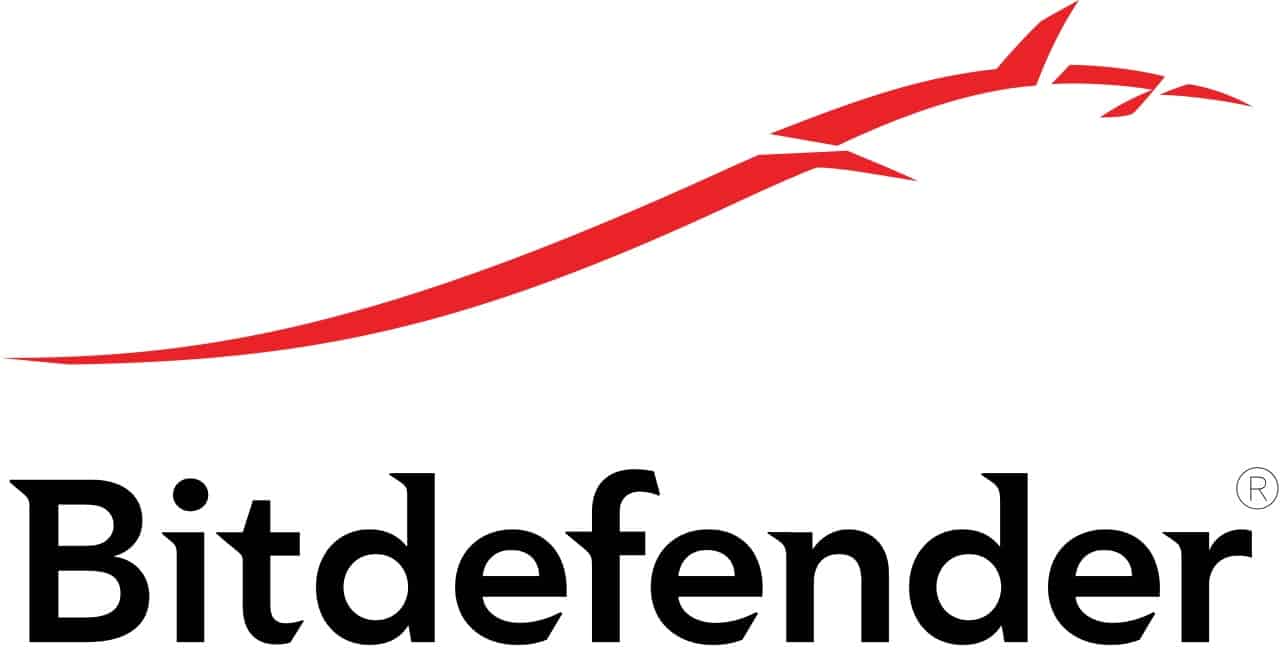“Linux is immune to viruses” is a common misconception. Linux is targeted less than Windows, but it isn’t invulnerable. Malware, rootkits, and other threats exist. This guide will look at the best antivirus for Linux to protect you from such threats.
Protecting your Linux system is a smart move, especially if:
- You share files with non-Linux users: Linux can act as a carrier for Windows malware, putting others at risk.
- You run a server: Servers are prime targets, and Linux servers need careful protection.
- You want extra peace of mind: Even for casual users, antivirus offers an added layer of security.
In a rush and don’t have time for the full detailed reviews? Here’s an overview of our top picks for the best Linux antivirus:
- Bitdefender GravityZone Business Security: The best antivirus for Linux. It offers excellent protection and centralized management tools, perfect for businesses and those with multiple Linux devices.
- Sophos Antivirus for Linux: Powerful malware detection with server-focused features makes it an ideal choice for protecting Linux servers.
- ESET NOD32 Antivirus for Linux Desktop: A long-standing, trusted antivirus solution known for its lightweight design and reliable protection, an excellent option for everyday Linux users.
- Avast Business Antivirus for Linux: Solid antivirus protection with a user-friendly interface, making it a good choice for personal Linux desktops.
- Trend Micro ServerProtect for Linux: This product is specifically designed for Linux servers and offers tailored threat protection and features for high-traffic or sensitive data environments.
Criteria for the best Linux antivirus
Choosing the best antivirus for your Linux system goes beyond scanning for malware. Here’s what we look for when determining the best options:
- The core function is to detect and stop Linux-specific threats
- Linux prides itself on efficiency; antivirus shouldn’t slow things down.
- Centralized management and tailored server protection.
- Clear interface, especially for less tech-savvy Linux users.
You can find out more about our tests later in our methodology section.
The best antivirus for Linux
Here’s a detailed look at our top recommendations:
1. Bitdefender GravityZone Business Security
Apps Available:
- PC
- Mac
- IOS
- Android
Website: www.Bitdefender.com
Bitdefender consistently earns top marks from independent testing labs, proving its effectiveness in detecting and neutralizing Linux-specific threats.
This business-focused solution goes beyond basic antivirus with a powerful management console, streamlining control across multiple Linux systems or other multiple devices. Advanced features like real-time protection, behavior-based detection, web filtering, device control, and hypervisor-level protection offer multi-layered security.
Bitdefender backs its product with excellent customer support options, making it easier to get help if needed. While its complexity might make it less ideal for beginners, businesses, IT admins, and power users who place Linux security at the forefront will find its protection and feature set offer good value.
Pros:
- Top-notch protection
- Centralized management
- Robust feature set
- Excellent customer support
Cons:
- Overkill for casual users
- Some advanced features may require technical knowledge
BEST ANTIVIRUS FOR LINUX:Bitdefender GravityZone Business Security has powerful protection, centralized management, and excellent customer support. Learn more on the Bitdefender website and secure your Linux environment.
2. Sophos Antivirus for Linux
Apps Available:
- PC
- Mac
- IOS
- Android
Website: www.sophos.com
Sophos‘ reputation in security is rock-solid, and its Linux solution delivers on that promise. Ideal for servers, it boasts powerful on-demand and real-time scanning with excellent malware detection rates. Web protection and centralized management tools further strengthen its server-side aptitude.
Sophos backs its solution with technical support options well-suited to IT professionals. It provides the robust defense you need if your Linux machine handles critical data or must maintain uptime, offering solid value for its server-focused feature set.
Pros:
- Stellar detection rates
- Powerful server-focused features
- Strong industry reputation
Cons:
- Setup can be complex
- Management tools mainly for enterprise use
BEST FOR POWER USERS:Sophos Antivirus for Linux offers robust server-side protection with stellar detection rates. Explore its features on the Sophos website to protect your critical servers.
3. ESET NOD32 Antivirus for Linux Desktop
Apps Available:
- PC
- Mac
- IOS
- Android
Website: www.eset.com
ESET is a name synonymous with antivirus, and its Linux offering upholds its commitment to reliable, lightweight protection. Its reputation for minimal system impact is a significant draw, ensuring your Linux experience remains snappy even under the antivirus’ watchful eye.
On-demand and real-time scanning provide dependable safeguards, while cross-platform malware detection helps prevent your device from becoming a carrier for Windows-based threats. ESET offers good customer support, and its focus on efficiency makes it excellent value for everyday desktop users.
Pros:
- Proven antivirus engine
- Minimal system impact
- Good cross-platform protection
- Customer support
Cons:
- The feature set may be less extensive compared to solutions aimed at servers
BEST FOR DESKTOP USERS:ESET NOD32 Antivirus for Linux Desktop is lightweight, reliable, and offers good customer support. Try it risk-free with its 30-day money-back guarantee.
4. Avast Business Antivirus for Linux
Apps Available:
- PC
- Mac
- IOS
- Android
Website: www.avast.com
Avast provides a familiar and accessible antivirus experience for Linux users who prefer a traditional approach. It’s real-time file scanning and network shield offer the core protection you expect, while optional web and mail shields create extra layers of defense.
The user-friendly interface and excellent customer support make it a good fit for Linux desktop users who might be less tech-savvy. Avast offers good value for desktop users with a proven track record of seeking essential protection.
Pros:
- Easy to use
- Solid core protection
- Optional extra features
- Excellent customer support
Cons:
- Lacks advanced server-side features offered by other solution
BEST FOR CASUAL DESKTOP USE:Avast Business Antivirus for Linux provides a user-friendly experience with great customer support. On the Avast website, you can download the free version or upgrade for additional protection layers.
5. Trend Micro ServerProtect for Linux
Apps Available:
- PC
- Mac
- IOS
- Android
Website: www.trendmicro.com
Trend Micro is designed with Linux servers in mind and provides various tools to keep these critical systems secure. Its flexible scanning options allow you to tailor scans to your server’s workload, and behavior monitoring helps catch emerging threats beyond signature-based detection.
Intrusion prevention capabilities add another layer of defense, crucial in high-traffic or sensitive-data settings. Trend Micro offers reliable support, and its server-specific feature set makes it a good value for protecting critical Linux server environments.
Pros:
- Server-focused protection
- Intrusion prevention
- Flexible scanning
- Good support
Cons:
- Overkill for casual desktop use
- Management tools mainly for enterprise environments
BEST FOR SERVER PROTECTION:Trend Micro ServerProtect for Linux delivers specialized server tools, intrusion prevention, and reliable support. Learn more about protecting your servers on the Trend Micro site.
How we find the best Linux antivirus: Our testing methodology
To find the best Linux antivirus options, we employed a rigorous testing methodology:
- Malware Detection: We tested each solution using real-world Linux malware samples, including known and zero-day threats. For a broader context, we also analyzed independent lab results.
- Performance Impact: System resource usage was tracked during full scans, real-time protection, and everyday operations. Antivirus shouldn’t create more problems than it solves by slowing things down.
- Features: We examined the full suite of security tools, from web filtering to intrusion prevention, evaluating their effectiveness and ease of use.
- Usability: The interface’s clarity, intuitive settings, and overall user-friendliness were considered, especially for less tech-savvy Linux users.
- Value: Features and pricing (personal vs. server-focused) were weighed to determine which solutions offer the best value for different use cases.
Linux antivirus FAQs
Do I really need an antivirus for Linux?
While Linux is less targeted by hackers than Windows, it’s not invincible. Antivirus is a smart choice if you share files with non-Linux users, run a server, handle sensitive data, or simply want an extra layer of protection.
Are there free Linux antivirus options?
Yes! ClamAV is a popular open-source solution. However, it may require more technical knowledge to set up and manage than the above commercial options.
Can my Windows antivirus scan Linux files?
Some Windows antivirus solutions offer limited cross-platform protection. This can help prevent the spread of Windows malware via your Linux device, but it shouldn’t be your sole line of defense for the Linux system itself.
Related:







